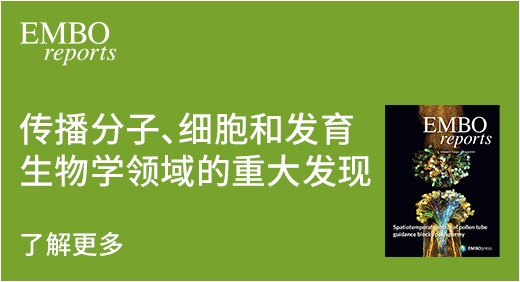-
Expanding access to adult community choirs: a scoping review to identify facilitators and barriers to choir membership Music Education Research (IF 1.8) Pub Date : 2025-05-29
Jodie Bloska, Lauren Godier-McBard, Helen Odell-Miller, Alexander Creamer, Hannah Merchant, Matt Fossey -
Editorial: Welcome by the new Editors-in-Chief Psychology of Music (IF 1.6) Pub Date : 2025-05-29
Nikki Moran, Michelle Phillips -
Concertmasters’ leading-tone intonation: Do they perform as they assess? Psychology of Music (IF 1.6) Pub Date : 2025-05-28
Sheng-Ying Isabella Weng, Erkki Huovinen, Sven AhlbäckMelodic intonation is generally considered a central expressive means in musical performance. In Western classical music, relationships between intonation in perception and performance have shown to be less straightforward than one might expect. In this study, we investigated leading-tone intonation for solo violin, as perceived and performed by six accomplished violinists. We selected excerpts from
-
Enabling more equitable teaching of advanced GCE level (A-Level) Music in England: a partnership approach Br. J. Music Educ. (IF 1.0) Pub Date : 2025-05-27
Robert GardinerRecent governmental figures have demonstrated that the number of students taking an examination in A-Level Music across England has fallen by 41% in eleven years (Ofqual, 2023a). Furthermore, areas with lower POLAR ratings (i.e. historical rates of participation in higher education) and greater levels of deprivation correlate with lower uptake of A-Level Music (Whittaker et al., 2019). These findings
-
‘A teacher by day and a performer by night’: performer-educator identity tensions in a graduate community of practice course Music Education Research (IF 1.8) Pub Date : 2025-05-26
Aaron Hodgson, Laura Benjamins -
Understanding the achievement goals of adolescent instrumental learners Music Education Research (IF 1.8) Pub Date : 2025-05-26
Samantha Caffull, Caroline Waddington-Jones -
Navigating Gender Bias in Academia: Experiences of Women Music Teacher Educators Journal of Research in Music Education (IF 1.2) Pub Date : 2025-05-22
Andrea VanDeusen, Cynthia L. WagonerIn this phenomenological study, we explored women music teacher educators’ experiences navigating gender bias in academia. Our research questions were: (1) How do participants describe their experiences in academia? and (2) How do age, rank, experience, geographic region, or school type/size impact their descriptions of their experiences with gender bias and marginalization in academia? We explored
-
Breaking with common practice: Exploring modernist musical emotion Psychology of Music (IF 1.6) Pub Date : 2025-05-21
Max Delle Grazie, Cameron J Anderson, Michael SchutzExperimental research on musical emotion has identified clear links between specific aspects of musical structure and emotional responses. However, growing recognition of changes in the affective meaning of specific cues over time raises intriguing questions about the degree to which these links hold across historical eras. In particular, the traditional focus on compositional principles from common-practice
-
Female conservatoire students’ voices regarding futures in the male-dominated world of western classical music: the communicative or controlled mirroring pianist body? Music Education Research (IF 1.8) Pub Date : 2025-05-19
Cecilia Ferm Almqvist, Carl Holmgren -
Treatments for performance anxiety in musicians across the lifespan: A systematic review and meta-analysis Psychology of Music (IF 1.6) Pub Date : 2025-05-19
Thomas J Nicholl, Maree J AbbottThe availability of effective and timely interventions targeting the core features of debilitating performance anxiety (PA) is necessary to support musicians across the lifespan. The aim of this review was to provide an updated search of the research on treatments for PA in musicians and conduct a meta-analysis for available randomised controlled trials (RCTs). A systematic search identified 57 published
-
Preventing Musician’s Focal Dystonia: A guide for music educators Int. J. Music Educ. (IF 1.3) Pub Date : 2025-05-19
Anna Détári, Eckart AltenmüllerMusician’s Focal Dystonia is a task-specific neurological movement disorder affecting the fine motor control of 1% to 2% of highly skilled musicians, often disrupting or even terminating professional musical careers. Given that recovery from the condition is time-consuming and not at all guaranteed, prevention is of high importance. The disorder develops as a result of a period of maladaptive learning
-
Music teachers’ philosophical beliefs and the use of those beliefs in teaching and advocacy in the USA Int. J. Music Educ. (IF 1.3) Pub Date : 2025-05-19
Julie Myung Ok SongThe purpose of the study was to examine music teachers’ philosophical beliefs, and their application of those beliefs to teaching and advocacy in the United States. I also explored the factors that might predict those beliefs and their application to teaching and advocacy. To measure music teachers’ philosophical beliefs, I developed the Philosophical Beliefs (Ph.B.) scale based on the foundational
-
‘ Belonging, Being and Becoming ’: Supporting preschooler’s identity development through Musicking Int. J. Music Educ. (IF 1.3) Pub Date : 2025-05-19
Xiangyi TaoFocussing on the Australian early childhood sector, this study extends advocacy for supporting children’s identity development through music. The Australian Early Years Learning Framework (EYLF) advocates that educators honour children’s right to a fulfilling childhood alongside their capacity to navigate change and transitions. This value is encapsulated in the EYLF’s title, ‘Belonging, Being and
-
Enacting presence: exploring in-service music educators’ understandings of relationships in a collaborative teacher study group Music Education Research (IF 1.8) Pub Date : 2025-05-14
Kelly Bylica, Sommer Helweh Forrester -
How is perception related to action? A neurophysiological perspective on music perception and learning Music Education Research (IF 1.8) Pub Date : 2025-05-14
Wilfried Gruhn -
Learning strategies and multimusicality in ear-learning tasks: An experimental pilot study Int. J. Music Educ. (IF 1.3) Pub Date : 2025-05-14
Kayla RushThis article reports on a small-scale experimental pilot study examining instrumentalists’ techniques for aural learning of new melodies from various cultural traditions, with the goal of contributing to a contemporary understanding of multimusicality. It examines what strategies musicians employ to learn new melodies and whether these strategies vary when the musicians are asked to learn melodies
-
An historic divide: Understanding conservatories and schools of music and their place in Australian higher education Int. J. Music Educ. (IF 1.3) Pub Date : 2025-05-14
Lauren McCormickThis paper examines the impact that the differing structure of conservatories and schools of music has on the educational experiences of their students by using musical higher education in Australia as a case study. Preprofessional music education at the tertiary level is crucial for the seamless interaction between and integration of musicians operating across multiple regions in an industry that
-
‘To every thing turn turn turn’: a commentary on new materialisms in (early childhood) music education Br. J. Music Educ. (IF 1.0) Pub Date : 2025-05-14
Susan YoungAt present, in music education scholarship, there is a renewed interest and enthusiasm in materiality motivated by theories that gather under the title of ‘New Materialism’. Beyond the field of music education, doubts and reservations towards new materialism are being discussed, but these discussions are not yet entering music education debates. There are reservations concerning the lack of continuity
-
Major-minorness in tonal music: Evaluation of relative mode estimation using expert ratings and audio-based key-finding principles Psychology of Music (IF 1.6) Pub Date : 2025-05-13
Tuomas Eerola, Michael SchutzMode is a foundational concept of Western music, serving as the basis for chords and harmonies, detecting and assessing cadences and form, and conveying musical emotion. Traditionally treated categorically, here we build upon recent work exploring this crucial musical construct on a continuum, an approach we refer to as ‘relative mode’. Specifically, we formulate and evaluate a computational model
-
Comparing the emotional effects of semantic content and vocal expression of lyrics Psychology of Music (IF 1.6) Pub Date : 2025-05-10
Nathan PondDespite a growing literature suggesting that the lyrics of music may have an emotional effect, there are as of yet no studies examining which elements of lyrics influence emotional experience. The present study explored the emotional effect of lyrics sung without a melodic accompaniment, examining whether the vocal expression or the semantic content of the lyrics had a greater influence on emotional
-
The melody in the mind: Associations between earworms, schizotypy, and subclinical obsessive-compulsive disorder Psychology of Music (IF 1.6) Pub Date : 2025-05-07
Flóra Fülöp, Ferenc HonbolygóEarworms are a form of involuntary musical imagery which are in many ways similar to musical hallucinations and obsessions present in clinical disorders, such as schizophrenia and obsessive-compulsive disorder (OCD). Previous research has shown relationships between earworms and schizotypy as well as subclinical OCD. The aim of this study was to investigate these associations in a Hungarian sample
-
“My musical self-portrait”: The phenomenology of musical improvisation Psychology of Music (IF 1.6) Pub Date : 2025-05-06
Viktor Kemény, Szabolcs Bandi, Dorian Vida, Mátyás Káplár, György RévészMusical improvisation is a widely used practice within many musical genres and cultures. But although there have been several studies on the experience and psychological benefits of music listening and music making, few have focused specifically on musical improvisation outside the practices of music therapy and jazz improvisation. In this study, we aim to explore the phenomenology of musical improvisation
-
A digital companion for musicological scholarship: the Lohengrin TimeMachine Journal of New Music Research (IF 1.1) Pub Date : 2025-05-06
Laurence Dreyfus, David Lewis, Kevin Page -
Motivational factors for sustained participation in a traditional Chinese orchestra among primary school students: a self-determination theory perspective Music Education Research (IF 1.8) Pub Date : 2025-05-05
Tao Guan, Ning Luo -
Latino Immigrant Children’s Acculturative Stress in Music Classes: A Structural Equation Model Journal of Research in Music Education (IF 1.2) Pub Date : 2025-05-01
Giulia RipaniResearch shows that the process of acculturation (adjustment to a new environment) determines psychological outcomes, such as acculturative stress. This relationship is affected by mediator variables, including social support and self-perceptions. Using structural equation modeling, this study explored how support in and through music and music self-perceptions affected the relationship between acculturation
-
Age is just a number: Persistent participation in Electronic Dance Music by women over 40 years Psychology of Music (IF 1.6) Pub Date : 2025-04-30
Alinka E Greasley, Alice O’Grady, Shauna E StapletonParticipation in electronic dance music events has a range of benefits for health and wellbeing and attracts a broad range of attendees, including those who no longer fit within the category of ‘youth’. Although a broadening demographic indicates growing diversification and inclusivity within club culture, experiences differ between groups and reveal socially constructed norms associated with age and
-
How music education students embrace pre-performance rituals to enhance their craft Psychology of Music (IF 1.6) Pub Date : 2025-04-29
Oksana Komarenko, Rebecca Gold, Gerardo RamirezWe investigate the prevalence, development, and impact of pre-performance rituals among music education students, uncovering their significant role in enhancing individual and group performance and in fostering community and belonging. Our study employed a mixed-methods approach, combining a survey of 97 undergraduate music students with an in-depth qualitative analysis of open-ended responses. We
-
Giftedness theories in musical talent development research: a scoping review with implications for music education scholars and practitioners Music Education Research (IF 1.8) Pub Date : 2025-04-21
Jesus Alfonso D. Datu, Katy Ieong Cheng Ho Weatherly -
How do children with hearing loss progress in group flute lessons compared to their normally hearing peers? A preliminary study Psychology of Music (IF 1.6) Pub Date : 2025-04-21
Eloise C Doherty, Margaret S Barrett, Wayne J WilsonMusic education for individuals with hearing loss has a long history, yet it is not comprehensively understood how children with hearing loss progress in mainstream instrumental music settings. The present study addressed this by assessing the progress of eight flute students, four with hearing loss who wore hearing aids and four with normal hearing, over 9 months of group lessons. Results showed that
-
The musical actions of mobile youth Int. J. Music Educ. (IF 1.3) Pub Date : 2025-04-17
Gabriela OcádizIn this paper, I explore how newcomer youth navigated identity, agency, and adaptation through music education at the Youth Music Program (YMP) in Canada. By analyzing their musical actions, this paper challenges dominant vulnerability narratives and highlights students’ creative and adaptive capacities. Drawing on critical ethnography and sociological perspectives on musical agency, findings suggest
-
Conductors’ views on individual practice activities Psychology of Music (IF 1.6) Pub Date : 2025-04-16
Helen Jossberger, Erkki Huovinen, Martin Ritter, Hans GruberThis study explored how professional conductors understand the role of individual (purposeful) practice and how they describe the contents of such practice. Twelve professional conductors were interviewed and content analysis was used to analyze the data. The results show that the participants understood conducting as a lifelong learning process. Through intensive individual practice, they had built
-
Musicians are faster to process hierarchical Navon letters Psychology of Music (IF 1.6) Pub Date : 2025-04-12
Erica Pomini, Alessandra Pecunioso, Christian AgrilloSeveral studies have reported an association between music training and enhanced visuo-spatial abilities—for example, musicians have been found to pay greater attention to local details of the visual scene. However, no studies have directly tested whether long-term music training impacts the global-to-local precedence commonly described in literature. We address this issue by comparing the performance
-
Comprehensive Musicianship through Performance (CMP) model in choir ensemble: Perspective form choirmasters in Klang Valley, Malaysia Int. J. Music Educ. (IF 1.3) Pub Date : 2025-04-12
Queen Nie Liaw, Wen Fen Beh, Feng-Hsu LeeChoir ensembles have been influential in shaping the esteemed culture of schools in recent decades. Despite this, choirmasters frequently place a significant emphasis on technical proficiency, considering it a key determinant of the choir’s learning rather than creating a thorough curriculum that covers all facets of comprehending music. In response, the current study aims to ascertain the criteria
-
Developing communicative competencies in children with functional diversity through music technology: a posthuman perspective Music Education Research (IF 1.8) Pub Date : 2025-04-11
Lee Cheng, Chi Ying Lam -
A scoping review and categorization of music and health psychometric inventories Psychology of Music (IF 1.6) Pub Date : 2025-04-11
Friederike Koehler, Michael J Silverman, Amy Riegelman, Jessica M Abbazio, Suvi SaarikallioHealthcare is often dependent on evidence derived from quantitative measurement. Music-based psychometric inventories are thus necessary to quantify health-related constructs. Despite an increase in the number of inventories, there is no systematic overview of the existing inventories, which may hinder dialogue across music disciplines (e.g., music psychology, music therapy). Therefore, the purpose
-
Identity formation and possible selves of early career instrumental music teachers: A qualitative study Psychology of Music (IF 1.6) Pub Date : 2025-04-11
Leon de BruinTeacher identity is a complex and non-linear evolution involving knowledge, skill, formation, transformation, and scrutiny of what one is doing and who one can become. This phenomenological investigation studied the views of 12 early career instrumental music teachers working professionally in Melbourne, Australia. Utilising possible selves theory, interpretative phenomenological analysis revealed
-
The common denominator: the case for an anthropocentric music education Br. J. Music Educ. (IF 1.0) Pub Date : 2025-04-11
Katya DavissonIn the words of Eric Lewis, “approaching Afrological musics from the theoretical perspective of a Western aesthetic…yields not only a lack of understanding…but can have pernicious political and social results.” In this paper, I demonstrate the relevance of this statement to the British Music classroom. In Part One, I outline the current state of the UK’s Model Music Curriculum and seek to identify
-
Polish Music Heritage in Open Access Journal of New Music Research (IF 1.1) Pub Date : 2025-04-08
Marcin Konik, Craig Stuart Sapp, Jacek Iwaszko -
Mechanisms of musical emotion transfer: insights from 22 composers and the musicological and psychological literature Journal of New Music Research (IF 1.1) Pub Date : 2025-04-05
Peter J. Varga, Brian Parkinson -
The impact of a focused listening experience on self-compassion and mental health help-seeking Psychology of Music (IF 1.6) Pub Date : 2025-04-04
Rachel G McClymont, Amanda E KrauseMany people do not seek mental health support due to self-stigma; however, music can assist people in seeking support. Therefore, the present study explored how attending a focused music listening event might promote self-compassion and mindfulness and, in turn, how experiencing these might promote mental health help-seeking intentions. This case study focused on the Indigo Project’s Listen Up event
-
How does music contribute to well-being? Perspectives from homeless young adults with problematic psychoactive substance use Psychology of Music (IF 1.6) Pub Date : 2025-04-04
Elise Cournoyer Lemaire, Christine Loignon, Chelsea Grothe, Marie Jauffret-Roustide, André Lemaître, Karine BertrandHomeless young adults with problematic psychoactive substance (PS) use face multiple challenges that compromise their well-being. Despite these challenges, few of them access psychosocial services and rather rely on personal resources to promote their own well-being. However, literature has been largely centered on their difficulties, leaving their strengths and capacities unknown. Despite this lack
-
Absolute pitch shift Psychology of Music (IF 1.6) Pub Date : 2025-04-04
Jon BaggaleyAbsolute pitch (AP) enables its possessors to identify musical notes and keys by qualities of tone height and tone chroma. With advancing age, an unknown proportion of AP possessors perceives changes in these qualities, usually described as in the sharp direction and to the extent of a semitone or tone. The phenomenon is identified here as absolute pitch shift (APS). Using a cellphone-based tone generator
-
-
A digital corpus for exploring the lute music of John Dowland (1563-1626) Journal of New Music Research (IF 1.1) Pub Date : 2025-04-04
Tim Crawford -
Music on the move: understanding music as otherwise knowledge in early childhood Br. J. Music Educ. (IF 1.0) Pub Date : 2025-04-02
Alejandra Pacheco-Costa, José J. Roa-Trejo, Fernando Guzmán-SimónPosthuman understanding of music and bodies as matter highlights otherwise forms of musical embodied learning. In this paper, we focus on an early childhood classroom music event and think diffractively with cognitive and posthuman theories in order to extend our insight into it. Accordingly, we explore cognitive approaches to music and movement, as well as posthuman concepts such as agency, embodiment
-
Checking in: Mental wellness and the music educator Psychology of Music (IF 1.6) Pub Date : 2025-04-01
Phillip D Payne, Natalie Steele RoystonGiven the rise in awareness of the mental health crisis, we set out to determine a baseline for mental wellness among current music educators. In a nationwide survey, music educators ( N = 695) responded to a series of questions focused on mental wellness, stress, and personality. Music educators shared that they struggle with mental wellness at a higher rate than the general population while data
-
Expanding the music circle through networked improvisation in an inclusive ensemble Int. J. Music Educ. (IF 1.3) Pub Date : 2025-04-01
Ellen Waterman, Erin Parkes, Geneviève Cimon, Jesse StewartPeople with disabilities are confronted with many barriers to participation in inclusive music making, including but not limited to challenges accessing appropriately adapted program curricula and pedagogical approaches. This article reports on a partnered research project ‘Expanding the Music Circle’ that brought professional orchestra musicians, special music educators and adults with profound disabilities
-
Auditory affective priming: The role of trait anxiety and stimulus type Psychology of Music (IF 1.6) Pub Date : 2025-03-30
James Armitage, Tuomas EerolaTo date, there has been relatively little research on the relationship between anxiety and music. Trait anxiety (TA) is known to modulate responses to threat-related stimuli, but it is unclear whether this is driven by differences or biases related to attention, vigilance avoidance, or information processing. We evaluated competing predictions based on Attentional Control Theory (ACT), Vigilance Avoidance
-
The mock concert: How early-career performers decipher and develop stage mastery Psychology of Music (IF 1.6) Pub Date : 2025-03-29
Olivia Urbaniak, Helen F. MitchellExpert performers understand the impact of sight and sound on the concert stage and project performativity to captivate their audiences. Early-career performers embarking on a professional performance career can benefit from experts’ strategies to develop their performance skills and enhance stagecraft. The aim of this study was to develop and trial a mock concert as experiential learning for professional
-
East Asian-Australian preservice and early career music teachers and their heritage music in New South Wales schools: a case study Br. J. Music Educ. (IF 1.0) Pub Date : 2025-03-28
Ke Wang, Michael WebbThis study investigates the extent to which a group of Australian preservice and early career secondary school music teachers of East Asian heritage are likely to teach aspects of their heritage music. It is positioned against a background of national multiculturalism and approaches to cultural inclusivity in Australian society, as well as the long-standing notion of ‘Asia literacy’ in Australian education
-
Difference in instrumental tuition in higher music education: towards an analytical framework Br. J. Music Educ. (IF 1.0) Pub Date : 2025-03-27
Jon Helge Sætre, Morten Carlsen, Henrik HolmInstrumental tuition is by many seen as the cornerstone of higher music education (HME) performance programmes. An increasing body of research looks into its strengths and weaknesses and calls for development in a number of ways. This study contributes to this debate by exploring the ways in which international instrumental tuition practices are different, however limited to Western classical music
-
How much is too much? Effects of unexpressive, expressive, and overly-expressive conducting on ensemble expressivity ratings Int. J. Music Educ. (IF 1.3) Pub Date : 2025-03-26
Brian Silvey, D Gregory Springer, Amanda Greenbacker-Mitchell, Collin Clark, Nicholas Doshier, Andrew DubbertThe purpose of this study was to investigate the effects of unexpressive, expressive, and overly-expressive conducting on college musicians’ ratings of ensemble expressivity. Participants ( N = 133) from the United States viewed three video recordings of three conductors whose unexpressive, expressive, or overly-expressive conducting performances had been synchronized with the same corresponding, high-quality
-
The problem of secondary school music enrolments: Tensions between relevance, engagement and improving musical skills and knowledge Int. J. Music Educ. (IF 1.3) Pub Date : 2025-03-26
Michael Newton, Renee Crawford, Jane SouthcottGlobal educational constructs affect students’ valuing of school music and continuation in music education beyond compulsory education. This United Kingdom-based study sought to understand the primary influences on students’ music education enrolment decisions after their compulsory years of schooling. Using mixed-methods research we investigated 346 Year 9 (compulsory) and Year 10 (post-compulsory)
-
A structural equation model of preschool teacher candidates’ self-efficacy beliefs for music teaching: The role of academic and preschool teaching self-efficacy Int. J. Music Educ. (IF 1.3) Pub Date : 2025-03-26
Çağrı ŞenThis study sought to explore the interrelationships between preschool teacher candidates’ self-efficacy in music teaching, their academic self-efficacy and their self-efficacy in preschool teaching. A review of the relevant literature was conducted, and Structural Equation Modeling was used to examine the relationships between variables. The study sample comprised 425 preschool teacher candidates.
-
Research into new music? Or new research into music? Journal of New Music Research (IF 1.1) Pub Date : 2025-03-21
David Meredith, Johanna Devaney -
Editing Purcell’s keyboard music: some reflections on collected editions, past and future Journal of New Music Research (IF 1.1) Pub Date : 2025-03-17
David J. Smith, Andrew Woolley -
The Effects of Post-Performance Conductor Behaviors on Perceptions of Ensemble Performance Quality and Conductor Competence Journal of Research in Music Education (IF 1.2) Pub Date : 2025-03-12
Victoria WarnetThe purpose of this study was to examine the effects of post-performance conductor behaviors on college music students’ perceptions of ensemble performance quality and conductor competence. Participants ( N = 202) were collegiate musicians who watched two videos of a male or female conductor, one with excellent and one with poor post-performance conductor behaviors. Although the visual aspects of each
-
Editorial Int. J. Music Educ. (IF 1.3) Pub Date : 2025-03-04
Francisco Javier Zarza-Alzugaray, Gwen Moore, Alex Ruthmann -
Does length of training period impact the effectiveness of reciprocal peer teaching in university group piano students? Int. J. Music Educ. (IF 1.3) Pub Date : 2025-03-04
Jinnan Liu, David J SaccardiReciprocal peer teaching (RPT) is an instructional strategy rooted in collaborative learning principles, wherein students take on the roles of both tutor and tutee. It has been examined in several music education contexts, including elementary, secondary, and university ensembles; however, group piano has yet to be examined. The purpose of this study was to determine what effects there were, if any
-
Developing learner-centred music theory resources: a case study from the Maltese Islands Music Education Research (IF 1.8) Pub Date : 2025-03-01
Moira Barbieri, Maria Varvarigou


















































 京公网安备 11010802027423号
京公网安备 11010802027423号